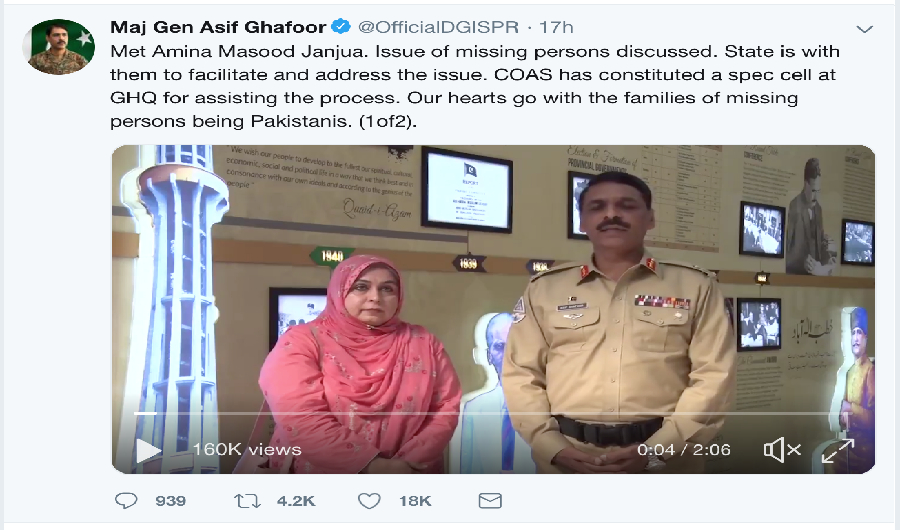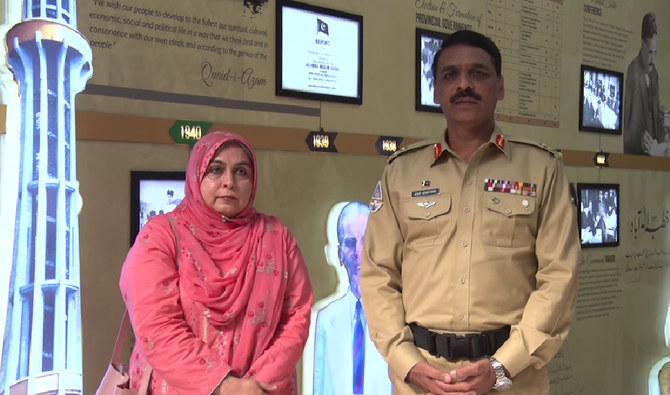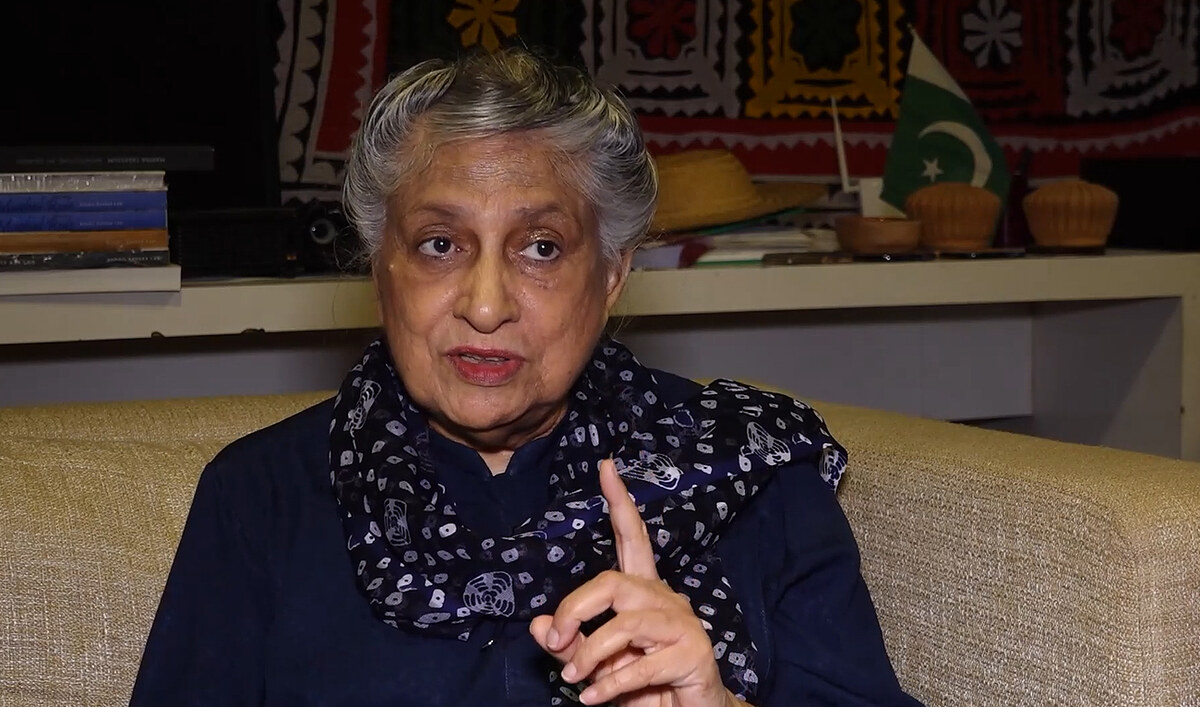ISLAMABAD: A special assistance cell has been established at the Pakistan army’s headquarters to resolve cases of missing persons, the military said on Friday after the head of its media wing met with Amina Janjua, an activist for the families of the missing whose own husband was detained over 10 years ago.
Cases of missing persons, for years a divisive issue in Pakistan, have come into the limelight in recent months due to the Pashtun Tahaffuz Movement (PTM), a vast civil rights movement campaigning for the rights of the country’s ethnic Pashtuns and against alleged extrajudicial killings, arbitrary detention and “disappearances” of young Pashtun men. The PTM has compiled a list of approximately 1,200 missing persons. Amnesty International said last year that a UN working group on enforced disappearances had 700 pending cases from Pakistan.
“Met Amina Masood Janjua. Issue of missing persons discussed,” army spokesman Maj Gen Asif Ghafoor said in a Twitter post. “State is with them to facilitate and address the issue. COAS [chief of army staff] has constituted a spec cell at GHQ [general headquarters] for assisting the process. Our hearts go with the families of missing persons.”

Janjua, the chairperson of the Defense of Human Rights, has been fighting for years, along with human rights lawyers and relatives of hundreds of missing prisoners, to get information about people allegedly detained by Pakistan’s security agencies. Some of the disappeared have links to radical mosques and militant outfits. Others went missing from jail. Most have not appeared in court charged with a crime, while some were acquitted but seized after they were freed.
The Pakistan army has for long said many of the missing persons have joined Taliban militants fighting against the Pakistani state. Security agencies also complain that Pakistan’s criminal courts, which have an overall conviction rate of between five and ten percent, simply release militant suspects. Police investigations are notoriously poor and judges are subject to intimidation.
“Not every person missing is attributable to state,” Ghafoor said on Friday. “Many are there as part of TTP in Afghanistan/ elsewhere or got killed fighting as part of TTP. Those with state are under legal process.”
He said a judicial commission was “working day and night” to resolve the issue of missing persons.
According to a statement released by the military press wing, Janjua acknowledged the efforts of the state and security forces in resolving the cases of missing persons and reiterated that affected families would not allow any anti-state force to exploit them. She also reposed “full confidence” in the state.




















